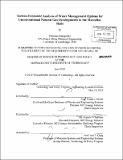| dc.contributor.advisor | Ernest J. Moniz and Francis O'Sullivan. | en_US |
| dc.contributor.author | Karapataki, Christina | en_US |
| dc.contributor.other | Massachusetts Institute of Technology. Technology and Policy Program. | en_US |
| dc.coverage.spatial | n-usa-- | en_US |
| dc.date.accessioned | 2012-09-13T19:00:27Z | |
| dc.date.available | 2012-09-13T19:00:27Z | |
| dc.date.copyright | 2012 | en_US |
| dc.date.issued | 2012 | en_US |
| dc.identifier.uri | http://hdl.handle.net/1721.1/72898 | |
| dc.description | Thesis (S.M. in Technology and Policy)-- Massachusetts Institute of Technology, Engineering Systems Division, Technology and Policy Program, 2012. | en_US |
| dc.description | Cataloged from PDF version of thesis. | en_US |
| dc.description | Includes bibliographical references (p. 129-135). | en_US |
| dc.description.abstract | The emergence of large-scale hydrocarbon production from shale reservoirs has revolutionized the oil and gas sector, and hydraulic fracturing has been the key enabler of this advancement. As a result, the need for water treatment has increased significantly and became a major cost driver for producers. What to do with the flowback water in light of scarce disposal facilities and substantial handling costs is a major impediment to the development of the natural gas resource, particularly in the Marcellus shale. This thesis explores the technical, economic and regulatory issues associated with water treatment in the shale plays and identifies best practice water management pathways based upon the Marcellus shale characteristics. The key factors that affect the choice of water treatment options and infrastructure investments are identified and investigated in detail. These include, among others, proximity to disposal facilities, transportation costs, potential for wastewater reuse and make-up water requirements. The study is supplemented by an analysis of the flowback water geochemistry and an examination of the chemical components, like barium and strontium hardness ions, that can restrict the potential of flowback water reuse. Important insights that will help inform the policy debate on how to best address both the environmental and operational water issues associated with hydraulic fracturing in the Marcellus region are derived through this study. Better reporting and monitoring of wastewater volumes is one of the main recommendations of this thesis. A wastewater management and reporting system that focuses on the optimization of water reuse among producers and facilitates information sharing could offer significant efficiencies in terms of reducing costs and minimizing negative environmental impacts. Furthermore, desalination technologies are currently cost prohibitive especially for onsite use. A governmental effort to identify and promote the development of desalination technologies that can effectively remove salts without being prohibitively expensive could help develop a sustainable water management solution. | en_US |
| dc.description.statementofresponsibility | by Christina Karapataki. | en_US |
| dc.format.extent | 172 p. | en_US |
| dc.language.iso | eng | en_US |
| dc.publisher | Massachusetts Institute of Technology | en_US |
| dc.rights | M.I.T. theses are protected by
copyright. They may be viewed from this source for any purpose, but
reproduction or distribution in any format is prohibited without written
permission. See provided URL for inquiries about permission. | en_US |
| dc.rights.uri | http://dspace.mit.edu/handle/1721.1/7582 | en_US |
| dc.subject | Engineering Systems Division. | en_US |
| dc.subject | Technology and Policy Program. | en_US |
| dc.title | Techno-economic analysis of water management options for unconventional natural gas developments in the Marcellus Shale | en_US |
| dc.type | Thesis | en_US |
| dc.description.degree | S.M.in Technology and Policy | en_US |
| dc.contributor.department | Massachusetts Institute of Technology. Engineering Systems Division | |
| dc.contributor.department | Technology and Policy Program | |
| dc.identifier.oclc | 808487574 | en_US |
